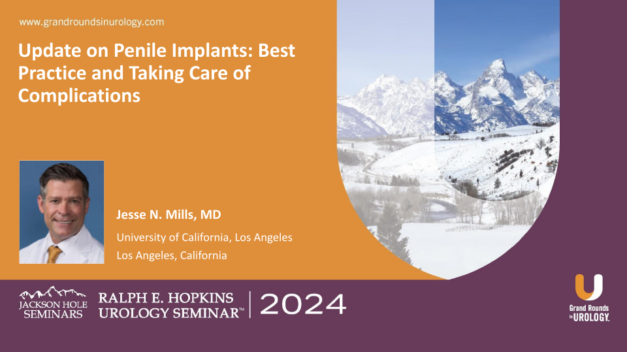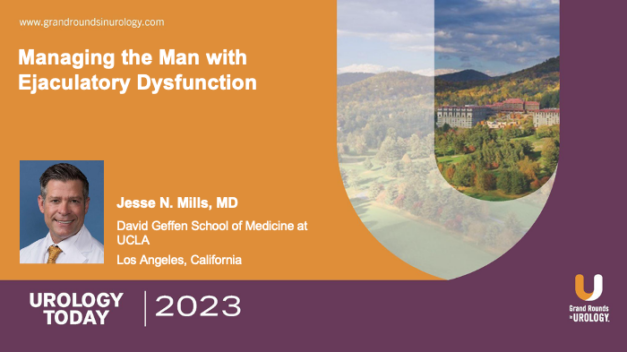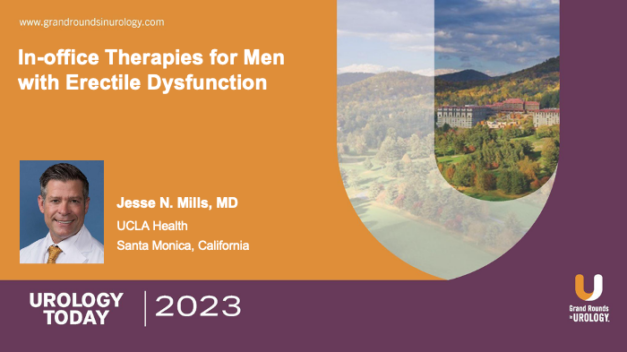Update on Penile Implants: Best Practice and Taking Care of Complications
Jesse N. Mills, MD, delivers an insightful presentation on the latest advancements and best practices in using penile implants.
In this 14-minute discussion, Dr. Mills reviews prep and surgical techniques. He also discusses both early and late complications associated with penile implants and outlines strategies for addressing issues such as infection and erosion. He stresses the importance of patient follow-up to ensure early detection and management of complications, thereby improving long-term outcomes.
Dr. Mills concludes by emphasizing the need for continuous education and skill development among urologists to keep pace with advancements in penile implant technology and surgical techniques. His presentation is a comprehensive guide for clinicians seeking to enhance their practice in managing penile implants and caring for patients experiencing complications.
Read More




